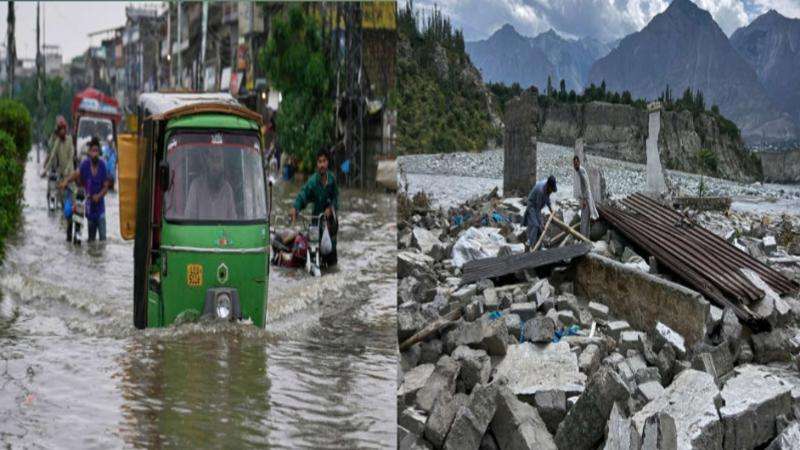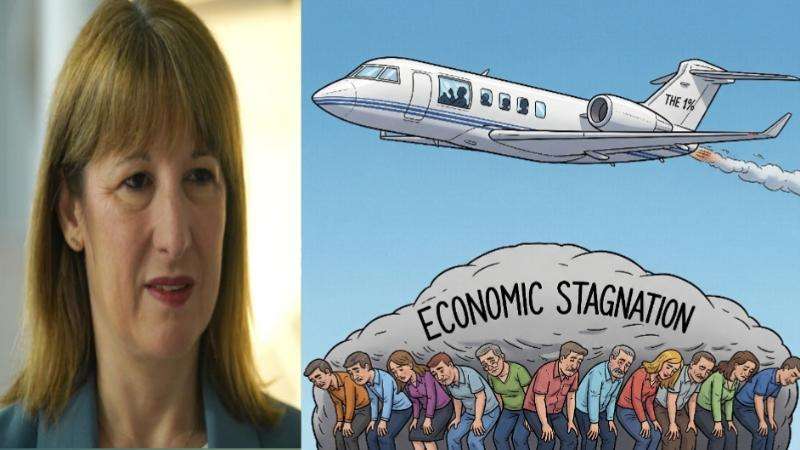Recent deadly monsoon floods in Pakistan, which have claimed hundreds of lives and destroyed thousands of homes, were significantly worsened by human-caused climate change, according to a new study. The research highlights a troubling trend of extreme weather events accelerating faster than previously predicted, putting not only Pakistan but also its neighbors, like Bangladesh, at heightened risk, Daily Dazzling Dawn understands.
A study by World Weather Attribution (WWA), a group of international climate scientists, found that the heavy rainfall in Pakistan between June 24 and July 23 was between 10% and 15% heavier due to global warming. This increase in precipitation led to widespread building collapses in both urban and rural areas. So far, the Pakistani government has reported at least 300 deaths and over 1,600 damaged houses since late June. The human cost is immense, with stories like that of businessman Saqib Hassan, who lost his home and dairy farms, facing losses of approximately 100 million rupees ($360,000). He and his family, along with many others, are now homeless, receiving only minimal aid.
Climate experts are sounding the alarm, noting that many extreme weather events projected to occur by 2050 are happening now, fueled by record-high temperatures. Jakob Steiner, an Islamabad-based climate scientist with the University of Graz, Austria, stated that "many events we projected to happen in 2050 have happened in 2025." This acceleration of climate impacts is not isolated to Pakistan. The entire South Asian region has been battered by a series of disasters, including recent floods in Nepal that washed away a key bridge and landslides in northern India that killed at least four people.
The study's authors emphasized that a warmer atmosphere holds more moisture, leading to more intense rainfall. Mariam Zachariah, a lead author on the WWA study, stressed that "every tenth of a degree of warming will lead to heavier monsoon rainfall, highlighting why a rapid transition from fossil fuels to renewable energy is so urgent."
The Vulnerability of South Asia, Including Bangladesh
While Pakistan is responsible for less than 1% of global greenhouse gas emissions, it suffers an outsized amount of damage from extreme weather. The 2022 monsoon floods in Pakistan were the nation's most devastating, causing over 1,700 deaths and an estimated $40 billion in damages. This pattern of low emitters suffering the most is a stark reminder of global climate inequality.
Bangladesh, sharing a similar climate and geography with Pakistan, faces comparable risks from the same climate-driven factors. The nation is highly vulnerable to rising sea levels, cyclones, and intensified monsoon rains, which can trigger severe flooding and river erosion. Much of its population lives in low-lying coastal areas and river basins, making them extremely susceptible to climate disasters. As global temperatures continue to rise, the threats to Bangladesh—including damage to homes, infrastructure, and agriculture—are expected to escalate, mirroring the devastation seen in Pakistan. Both countries urgently require international financial assistance to build resilient infrastructure and adapt to the escalating climate crisis.
Global Inaction and Insufficient Aid
Despite the clear and present danger, global efforts to provide financial support to vulnerable nations are falling short. The UN has warned that global funds for climate-related loss and damage are severely underfunded. Developed countries, which are responsible for the vast majority of historical emissions, are providing far less than the necessary adaptation financing. These funds are critical for improving housing and infrastructure in vulnerable areas. The WWA report specifically points out that much of Pakistan's fast-growing urban population lives in fragile settlements, making them particularly susceptible to deadly floods.
Maja Vahlberg of the Red Cross Red Crescent Climate Centre, another author of the WWA report, reinforced this point, stating, "Building flood-resilient houses and avoiding construction in flood zones will help reduce the impacts of heavy monsoon rain." The current crisis in Pakistan serves as a dire warning for the entire South Asian region, underscoring the urgent need for both international climate action and significant financial support to help vulnerable nations adapt before it's too late.







.svg)
